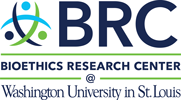SOPHIA JUI-AN PAN, PHD

SOPHIA JUI-AN PAN, PHD
Visiting Research Fellow
314-273-9115
SOPHIAJUI-AN.PAN@WUSTL.EDU
SOPHIA JUI-AN PAN, PHD is a Visiting Research Fellow for the Bioethics Research Center at Washington University School of Medicine in the Division of General Medical Sciences. Pan completed her PhD in education (eLearning) at National Chiao Tung University, Taiwan. Her current research foci include three areas: (1) research integrity and ethics as they relate to knowledge, misconceptions, and attitudes that are prevalent among graduate students and scientists; (2) instructional methods and strategies, especially those that are online, for imparting ethics education to learners; and (3) the challenges of supporting research integrity in the face of publication pressures (e.g., the ethics of authorship), particularly in East Asian academia.
Dr. Pan is currently an Instructional Designer and Executive Secretary at the Center for Taiwan Academic Research Ethics Education (Ministry of Education, Taiwan). She is also a content contributor of Research Integrity Newsletter published monthly by the Office of Research Integrity, Ministry of Science and Technology of Taiwan.
SELECTED HONORS & AWARDS
- 2018 Award Recipient, Postdoctoral Research Abroad Program, Ministry of Science and Technology of Taiwan
- 2017 Poster Award – Third Prize, 5th World Conference on Research Integrity 2017, Title: The changes to the institutional research climate before and after the implementation of a nationwide research ethics education project in Taiwan
- 2017 Research Integrity Award—Graduate Student Recipient, UC San Diego
- 2015 Award Recipient, Graduate Students Study Abroad Program, Ministry of Science and Technology of Taiwan
RESEARCH SUPPORT – SELECTED CURRENT PROJECT
Postdoctoral Research Abroad Program, Ministry of Science and Technology of Taiwan
(08/01/2019 – 07/31/2020)
This project includes two research topics. First, we are investigating the warning signs of a problematic mentoring relationship in research and mentors’ responses to these signs. We are particularly interested in the cultural differences among these warning signs. Second, we are assessing Taiwanese local academia’s needs for a professional development program (i.e., Professionalism and Integrity in Research Program), including the operationally appropriate ways to conduct the Program in Taiwan. Sisk BA, Baker JN. Microethics of communication-hidden roles of bias and heuristics in the words we choose. JAMA Pediatrics. 2018. PMID:30357382
REPRESENTATIVE PUBLICATIONS
Pan SJ-A, Chou C (2020). Taiwanese researchers’ perceptions of questionable authorship practices: An exploratory study. Science and Engineering Ethics. doi: 10.1007/s11948-020-00180-x
The Drafting Committee. Taiwan Code of Conduct for Research Integrity 2020. (Pan SJ-A served as one of the seven members of the Drafting Committee).
Hsueh M-L, Pan SJ-A, Chou C. A preliminary investigation of Taiwanese researchers’ (mis)understandings of academic ethics: Taking the reported cases relating to plagiarism, improper citations, and self-plagiarism by the Ministry of Science and Technology as examples. Journal of Educational Media & Library Sciences. (Accepted–In Press. Published in Chinese; supporting materials in English are available online.)
Hsueh M-L, Pan SJ-A, Chou C. A proposed guideline for examining the severity of academic ethics violation and the extent of subsequent sanctions. Taiwan Educational Review Monthly. 2019; 8(12), 68–75. (Published in Chinese)
Pan SJ-A, Chou C. Using a two-tier test to examine Taiwanese graduate students’ misunderstanding of responsible conduct of research. Ethics & Behavior.2015; 25(6), 500–527. doi:10.1080/10508422.2014.987921

